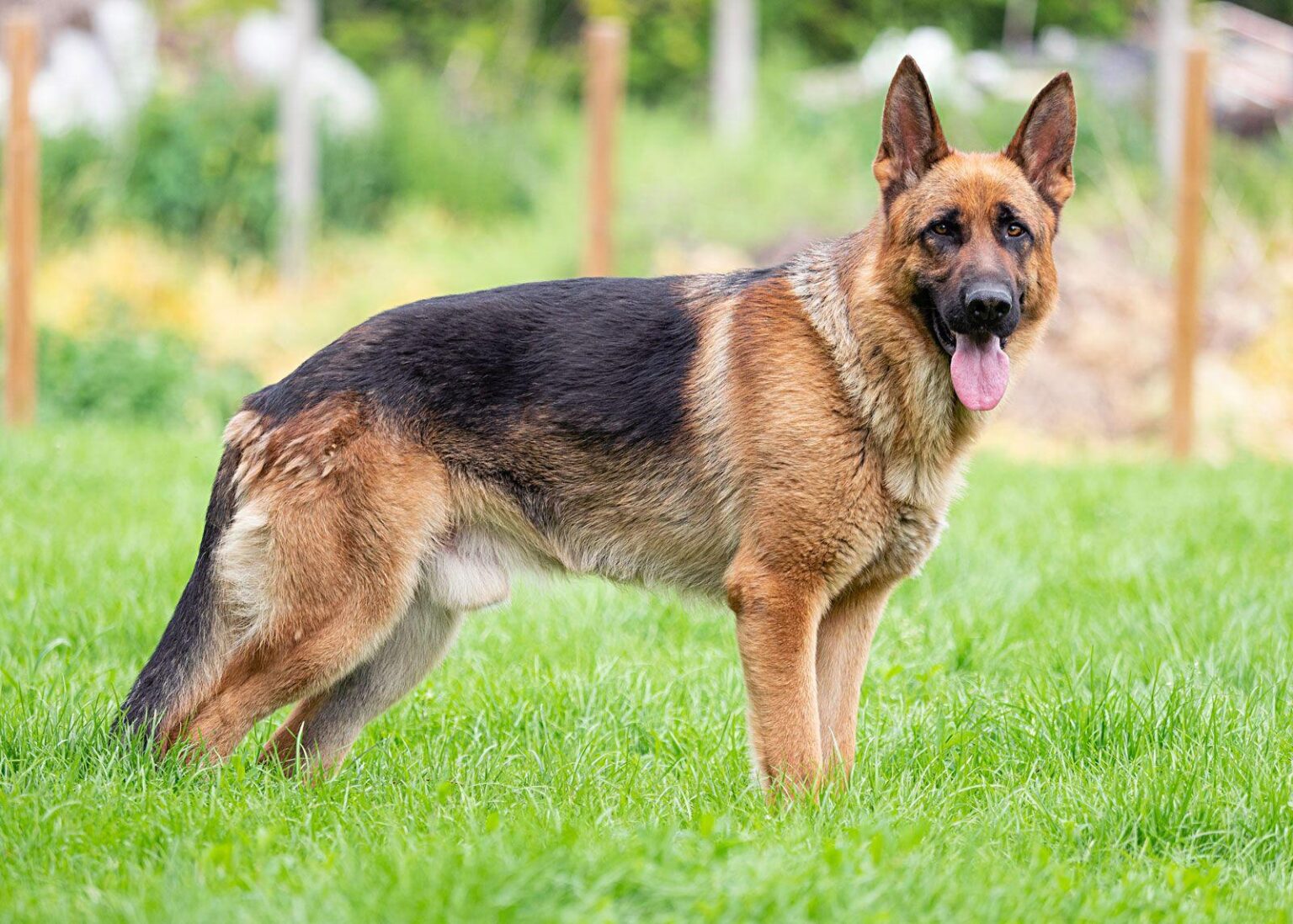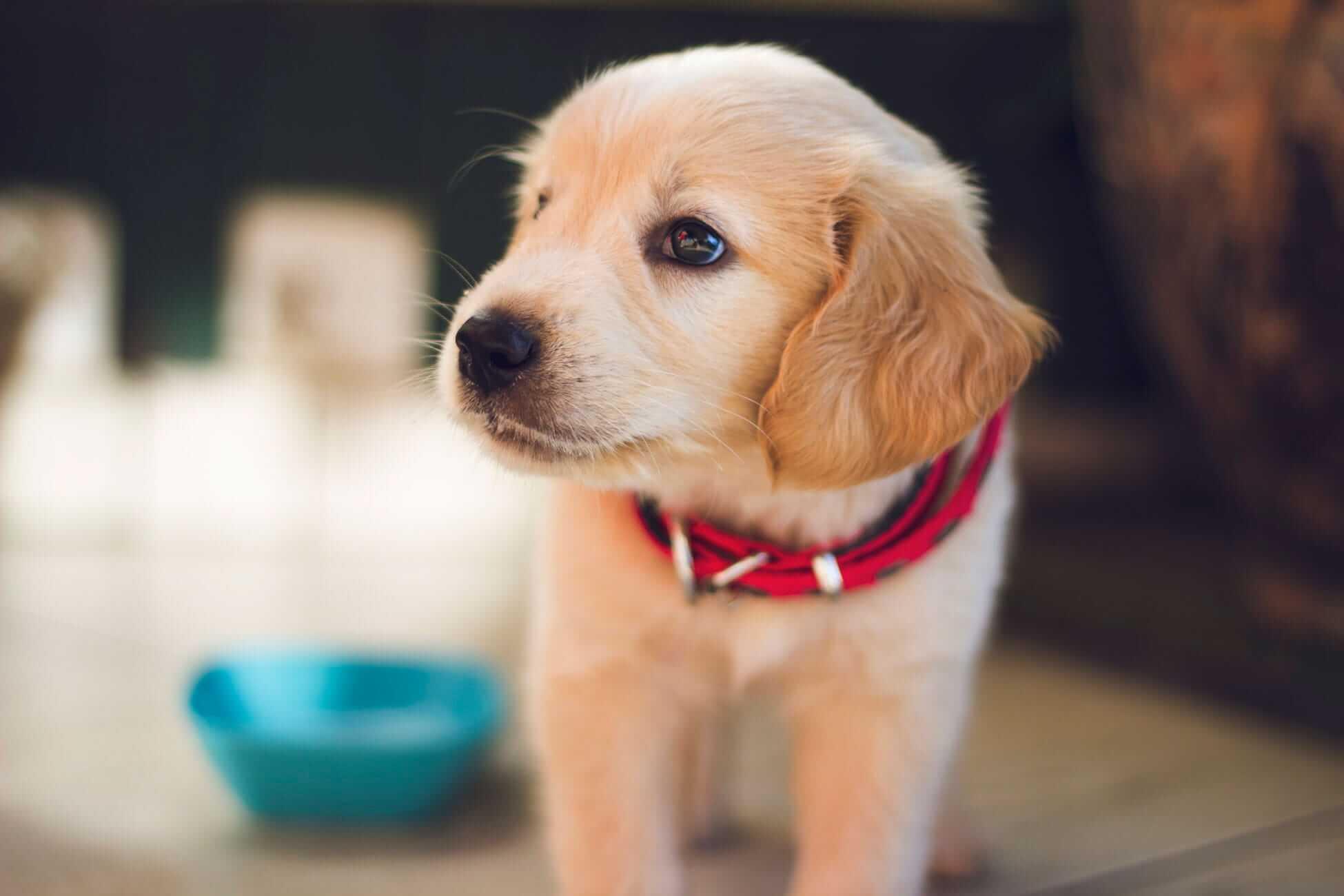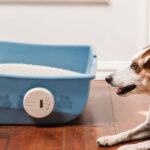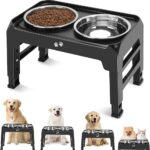As pet owners, we cherish the bond we share with our furry companions and take joy in their well-being. However, when our dogs suddenly refuse to drink water, it can be a cause for concern. Hydration is crucial for maintaining their health, and any change in their drinking habits could indicate underlying issues that need attention.
In this article, we’ll explore the possible reasons why your dog may be turning away from their water bowl, from health-related concerns to behavioral factors. More importantly, we’ll provide practical tips and strategies to encourage your pup to drink more water and ensure they stay hydrated. Understanding your dog’s needs is essential for their happiness and longevity, so let’s dive in and find out how to help your beloved pet!
Table of Contents
- Understanding the Reasons Behind Your Dogs Refusal to Drink Water
- Recognizing the Signs of Dehydration in Your Furry Friend
- Practical Tips to Encourage Your Dog to Stay Hydrated
- When to Consult a Veterinarian for Your Dogs Hydration Issues
- Q&A
- Wrapping Up
Understanding the Reasons Behind Your Dogs Refusal to Drink Water
When you notice your furry friend turning away from their water bowl, it can be a cause for concern. Understanding the underlying reasons can help you take the right steps to encourage them to hydrate. Some common factors include health issues, like dental problems or digestive discomfort, which can make drinking water painful. Additionally, environmental influences, such as temperature or water quality, can also play a significant role. For instance, if the water is too warm or has an unusual taste, your dog may simply refuse to drink it.
Another important consideration is your dog’s behavioral tendencies. Some dogs may be picky about where they drink or might be experiencing stress due to changes in their environment, such as moving to a new home or the introduction of a new pet. Here are a few strategies to encourage hydration:
- Ensure water is fresh and cool.
- Experiment with different bowls—some dogs prefer ceramic or stainless steel.
- Add flavor to their water with a splash of low-sodium broth.
- Provide multiple water sources around the house.
- Encourage them after meals and exercise when they need hydration the most.
Recognizing the Signs of Dehydration in Your Furry Friend
Understanding when your dog is dehydrated is crucial for their overall health. Keep an eye out for common signs that indicate your furry friend may not be getting enough water. These can include:
Dry gums and nose: Healthy dogs typically have moist gums and noses. If these areas appear dry or sticky, it might signal dehydration.
Lethargy: If your pup seems unusually tired or lacks energy, it could be a sign that they’re not well-hydrated.
Reduced skin elasticity: Gently pinch the skin on the back of their neck; if it doesn’t return to its normal position quickly, dehydration may be an issue.
Unusual urine output: Dark yellow urine or infrequent urination can indicate that your dog is not drinking enough water.
If you notice these signs, it’s important to act quickly. One effective way to boost your dog’s hydration is by encouraging them to drink water in different forms. Consider offering:
| Hydration Options | Benefits |
|---|---|
| Fresh Water | Always essential; makes sure they have access to clean and fresh water. |
| Wet Food | Increases moisture intake while providing nutrition. Perfect for picky eaters. |
| Ice Cubes | A fun way to encourage them to lick and hydrate during warmer months. |
| Broth | Low-sodium broth can entice them to drink while adding flavor. |
Practical Tips to Encourage Your Dog to Stay Hydrated
Keeping your dog hydrated is essential for their health and well-being. Here are some practical tips to encourage your furry friend to drink more water:
Fresh Water: Always provide fresh, clean water in their bowl. Change the water daily to keep it appealing.
Flavor it Up: Add a splash of low-sodium chicken or beef broth to their water to entice them to sip more.
Use a Fountain: Dogs are often drawn to moving water. Consider investing in a pet water fountain to encourage drinking.
Hydration Snacks: Incorporate water-rich fruits and veggies into their diet, like watermelon or cucumber, as treats.
Multiple Bowls: Place several water bowls around your home, so they always have easy access.
Observing your dog’s drinking habits is crucial, especially if you’ve noticed them drinking less than usual. To easily monitor their hydration levels, it can be helpful to track their water intake. Consider using a simple table to record daily measurements:
| Date | Water Intake (ml) | Notes |
|---|---|---|
| Day 1 | 200 | Normal |
| Day 2 | 150 | Less active |
| Day 3 | 300 | Played outside |
This approach will help you identify any significant changes in your dog’s drinking patterns and take action promptly. Remember, a well-hydrated dog is a happy and healthy dog!
When to Consult a Veterinarian for Your Dogs Hydration Issues
It’s crucial to recognize when your dog’s refusal to drink water signals a need for veterinary attention. If your furry friend displays any of the following symptoms, it’s time to schedule a visit:
Persistent Lethargy: If your dog is unusually tired or unresponsive.
Signs of Dehydration: Look for dry gums, sunken eyes, or a loss of skin elasticity.
Vomiting or Diarrhea: Frequent vomiting or diarrhea can lead to significant fluid loss.
Changes in Behavior: Any abrupt changes in behavior, like increased irritability or hiding.
Less Frequent Urination: Noticeable decrease in normal urination patterns.
In some cases, refusal to drink may stem from dental issues, gastrointestinal problems, or underlying illnesses that require medical intervention. A veterinarian can conduct the necessary examinations and diagnostic tests to determine the root cause and recommend appropriate treatments. Keep an eye on your dog’s hydration status, and if you ever feel uncertain, it’s always best to err on the side of caution.
Q&A
Q1: Why might my dog refuse to drink water?
A1: There are several reasons your dog may refuse to drink water. Common causes include health issues like dental problems, gastrointestinal discomfort, or other medical conditions. Stress and anxiety can also play a role, particularly if there have been recent changes in their environment. Sometimes, dogs may avoid water if it’s not fresh or if they dislike the bowl type.
Q2: What health issues could cause my dog to stop drinking water?
A2: Health concerns such as kidney disease, urinary tract infections, and diabetes can lead to increased thirst or refusal to drink. Dental issues, like gum disease or tooth infections, can cause pain that makes drinking uncomfortable. If your dog shows other symptoms like lethargy, vomiting, or changes in behavior, it’s important to consult a veterinarian.
Q3: How can I tell if my dog is dehydrated?
A3: Signs of dehydration in dogs include dry gums, lethargy, loss of skin elasticity (the skin doesn’t bounce back quickly when you give it a little pinch), sunken eyes, and decreased urination. If you observe any of these signs, it’s crucial to seek veterinary attention promptly.
Q4: What can I do to encourage my dog to drink water?
A4: There are several strategies you can try:
- Fresh Water: Make sure to provide clean, fresh water daily. Change it frequently and wash the bowl regularly.
- Different Bowls: Experiment with different bowl types. Some dogs prefer wider, shallower bowls, while others like water fountains that provide a flowing stream of water.
- Flavor it Up: Add flavor to the water by mixing in low-sodium broth or using water-enhancing products designed for pets.
- Ice Cubes: Some dogs enjoy playing with and chewing on ice cubes, so you might try offering them ice instead of water.
- Wet Food: Consider incorporating wet dog food into their diet, as this can help increase their overall fluid intake.
Q5: When should I be concerned enough to call a vet?
A5: If your dog refuses to drink water for more than 24 hours, shows signs of dehydration, or displays other worrying symptoms (like vomiting, diarrhea, lethargy, or changes in behavior), it’s essential to seek veterinary care promptly. The earlier you address the issue, the better the outcome for your furry friend.
Q6: How can I ensure my dog stays hydrated in the future?
A6: To promote good hydration habits, ensure that your dog always has access to clean water. Monitor their water intake and encourage them to drink, especially after exercising. Keeping up with regular veterinary check-ups is also crucial, as your vet can help monitor your dog’s health and ensure they are drinking enough.
Q7: Are there specific breeds that are more prone to water-related issues?
A7: While any dog can face hydration issues, certain breeds, particularly those with flat faces (like Bulldogs and Pugs), may struggle more due to their anatomy. Additionally, senior dogs or those with existing health issues may be more susceptible. Regular monitoring and proactive care are key for these breeds.
Remember, your dog’s well-being is a priority, so don’t hesitate to reach out to your vet if you’re concerned about their hydration or overall health.
Wrapping Up
understanding why your dog may refuse to drink water is crucial for ensuring their overall health and well-being. Whether it’s due to environmental factors, health issues, or simple pickiness, recognizing the signs early can lead to effective solutions that will keep your furry friend hydrated and happy. Remember, your dog’s hydration is a vital part of their care, so don’t hesitate to consult with a veterinarian if you notice persistent changes in their drinking habits. By being attentive and proactive, you can help create a positive experience around drinking water, making it a regular and enjoyable part of your dog’s day. Here’s to keeping our beloved companions healthy and hydrated—after all, a well-hydrated dog is a happy dog! Thank you for reading, and we wish you and your pup all the best on your journey together.
















